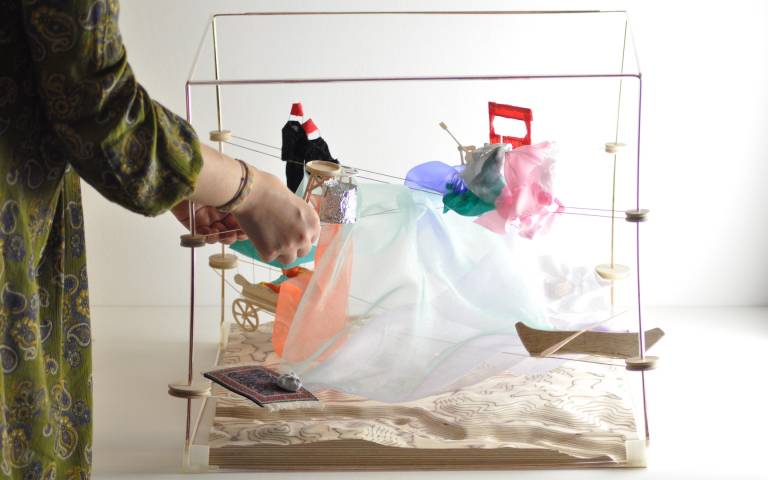Bartlett Master's Graduate Wins 2023 Postgraduate Dissertation Prize
19 September 2023
Göksu Toprak was awarded the prize by the Geography of Leisure and Tourism Research Group, for her 2022 graduating Architecture and Historic Urban Environments MA thesis.

The Geography of Leisure and Tourism Research Group is a research branch of the Royal Geographical Society. Their annual Postgraduate Dissertation Award offers a cash prize of £100 for the best taught Masters dissertation in leisure/tourism/sports geography, submitted as part of a MA or MSc degree at a UK-based university, and informed through the geographical concepts of place and space.
Göksu’s Master’s dissertation approached the subject of social polarisation. Researching Istanbul, she used two lost leisure typologies as case studies to explore how occupying a space can help build collective memories, bring community members together in self-replicating ways, and work toward sustainability on multiple levels.
Responding to the award, Göksu said,
“I am very honoured to receive the GLTRG 2023 PGT Dissertation Prize for my thesis. Having my research on collective memories, everyday spatial narratives, and organic conflict resolution recognised by a community of researchers like GLTRG gives me great motivation, encouragement, and excitement. I also would like to thank for the unmatched support I received from the MAHUE team at The Bartlett School of Architecture and especially my supervisor Dr Lakshmi Priya Rajendran.”
Istanbul’s Lost Leisure Spaces as Collective Memory of Superstructures: (Re)learning from Mesires and Plajs to Overcome the Social Polarisation
by Göksu Toprak
Architecture and Historic Urban Environments MA
As a conflict often visible in diverse communities, social polarisation challenges economic, cultural, and ecologic sustainability. In this research, this abstract phenomenon is studied through a spatial perspective that investigates the processes of building collective memories and identities by occupying a space. It examines the ways in which the social relations within a community are constructed and the boundaries are negotiated in everyday encounters through micro-dynamics and appropriations of space. Consistently, the research focuses on leisure spaces that carry the potential of sustaining autonomous, spontaneous, self-iterating interactions between the individuals of a community. It takes two lost leisure typologies of Istanbul, which were ‘free’ lands activated through temporary occupations as case studies: mesire (meadows) and plaj (beaches). It studies them through a phenomenological perspective by probing the relationship between the physical space, the temporary elements and their interactions, and the abstract meaning of the space that together create the space identity and can be described as a “superstructure” by adopting Edward Casey’s terms.[1]
Based on the motivation of resolving contemporary dilemmas and controversies on social polarisation, this research aims to rediscover the potential of a space and its memory to redefine social structures from the bottom up. It also aims to propose a perspective that may become a tool for more inclusive and sustainable future designs. Throughout the study an approach that realises the space, the memory and the identity as cumulative dynamic phenomena is adopted. Building on this potential, the research collects information on meadows and beaches from easy to reach, open-access resources; gathers multiple narratives creating the collective memories surrounding them, and visually recreates the accumulated identities of these typologies in a non-hierarchal way. Two outputs of this study accompanying the written essay, are an archival website, and a pair of conceptual models on the abstract spatial conceptualisation portrayed in this study.
Göksu graduated Architecture and Historic Urban Environments MA in 2022, and her work was exhibited as part of The Bartlett Autumn Show 2022.
More information
- Read more about Göksu’s award at the GLTRG website
- Find out more about Göksu’s graduating project
- Learn more about Architecture and Historic Urban Environments MA
Image: ‘Istanbul’s Lost Leisure Spaces as Collective Memory of Superstructures: (Re)learning from Mesires and Plajs to Overcome the Social Polarisation’ by Göksu Toprak, Architecture and Historic Urban Environments MA
 Close
Close

